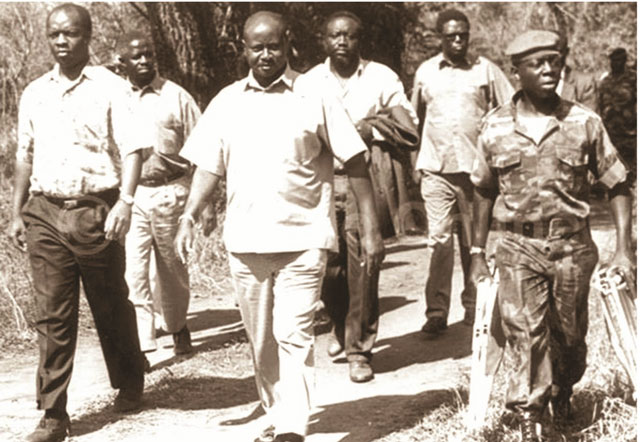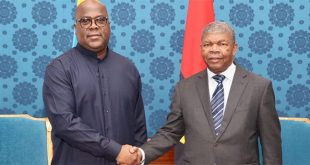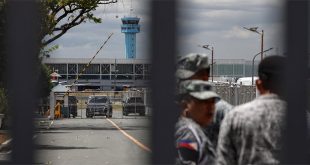
`The real test of democracy is when an incumbent party or candidate or both lose an election and power’
NRM programme point No.1: Democracy
Moses Khisa is a Political scientist and Assistant Professor of Political Science in the School of Public and International Affairs at North Carolina State University. He spoke to The Independent’s Agnes E Nantaba about the state of democracy in Uganda under the NRM regime 33 years later.
How has the NRM government performed in relation to democracy and rule of law since 1986?
There is no doubt that Uganda made remarkable progress; especially in the first ten years of the NRM regime. The system of popular participation under the Resistance Councils provided a sound framework and solid platform for citizen representation and public accountability. The conclusion of the 1995 constitution, its many flaws notwithstanding, was historic and a major achievement. But since 2004 there has been a sustained assault on the 1995 constitution that has turned the constitution into, as President Museveni has said in the past, a “mere piece of paper.” Since 2006, Uganda has been in reverse gear on the democratic front. The state of rule of law has been deteriorating rapidly. It’s all about Museveni clinging to power and those opposed to him having to fight hard to dislodge him. We don’t have principled and constructive political engagement around policy issues; rather it’s about Museveni stays or he goes. This is what regime longevity and Museveni’s life-presidency project has brought.
What are the key elements of democracy in Uganda in line with parliamentary democracy, popular democracy and a decent level of living for every Ugandan?
First, Uganda is not a parliamentary democracy. We have parliament as a branch of government charged with legislation and oversight but ours is actually a presidential system. In fact our political system is fundamentally presidential in the sense that everything revolves around presidential power. Second, popular democracy is a loaded concept. There has to be a difference or relationship between “parliamentary democracy” and “popular democracy.” At the heart of popular democracy is the popular will of the people, what the majority will. In Uganda today we have neither functional parliamentary democracy nor popular democracy. Third, the notion of “decent living for every Ugandan” is rather misplaced. Democracy, whether popular or parliamentary may have little to do with standards of living. Democracy is primarily procedural, meaning it is about how to decide who governs or who gets the right to make decisions. This is quite apart from whether or not democracy can deliver on the substantive issues. In fact as a system of government, democracy is not necessarily the best when it comes to substantive issues such as delivering goods and services to the public and bettering people’s lives. But there is also evidence, globally, that democratic governments on average tend to do better over the long term in substantive terms. This though is not the case with African states. In Uganda, matters are made worse by the perversion of democracy, meaning the mess that we have which passes for democracy when it’s not. We have a façade of democracy, cosmetic and superfluous shows of democracy which are travesties and not genuine democratic practices. Better to have an authoritarian system that can deliver on economic issues than a system that purports to be democratic when it’s a mere mockery.
What implications does an illiterate, sick, superstitious population have on the political life of a country?
There is a generally accepted proposition in academic debates of a positive relationship between the quality of life, meaning the socioeconomic status of the people, and the quality of democracy. Countries that have high standards of living, like the Nordics, Germany, etc., also tend to have stable democratic practice and superior governance systems. The question that remains a point of contention is which one comes first: do you first achieve high standards of living before gaining better government, or better government and prudent public management is what gives you economic prosperity and social transformation? It’s arguable.
What is your take on the argument that NRM has passed the test of conducting regular elections in 1996, 2001, 2006 and 2011 but has failed the test on free and fair elections?
The real test is not just holding regular elections but regular free, fair, credible and transparent elections. That’s what the constitution provides. The constitution does not say that we hold elections that are unfree and unfair. Therefore, to the extent that we have not had credible elections, especially since 2006, the NRM has not passed the democratic test. In real democratic practice, the test of elections is when an incumbent party or candidate or both lose an election and power. Until that happens, you can’t say that the test has been passed.
For many years, the security agencies like the police and army have topped lists of human rights violators in the country? Who is to blame?
Those in charge of commanding security agencies and the armed forces. There are two sets of human rights violations among the police and the military. First, errant officers and rogue elements who commit personal violations either out of sheer reckless conduct or in pursuit of material ends. They violate people’s rights because they are ignorant and are just bad-mannered or because they want to extort. This is a problem of administrative failure. The second, more critical source of violations is political. The police and military have become tools and instruments of political repression. This applies to abuses and wrongs committed against members of the media. The exigencies of regime survival and Museveni’s life-presidency pursuits fuel the resort to the armed forces which inevitably leads to physical and emotion abuse to members of the public. Our politics in recent years has degenerated to more confrontation than conversation, street battles than structured dialogue.
Where does the challenge lie?
The challenge is now with building a new national consensus because the consensus embodied in the 1995 constitution has been decidedly eroded. The idea of a national dialogue is a good starting point. But the way it is being pursued now is a non-starter. It will end up being another of those rituals where Museveni gives lectures about how he brought liberation and is still on a mission to take Uganda to prosperity.
How best can the challenges be addressed to get the country on track?
We need deep soul-searching. Uganda has a patently broken political system. Corrupted and decayed. What we call democracy is nothing short of a travesty. We need to get back to the drawing board. But to do so pressure has to be exerted on the current rulers to realise that they are taking us down the drain and need to change course. We have to turn around things but it can’t happen with the kind of national dialogue being proposed and pursued. It has to start with pressure being placed squarely on the rulers so as to abandon the course they have been pursuing. Whatever will get us out of the current mess has to be the work of Ugandans, all of us. If we stay stuck in the old frame of a savior or liberators, we shall end up exactly where we are now: with a group of self-seekers pursuing personal aggrandisement at the expense of the common good.
There are arguments that the government should work towards reversing the monetisation of politics as this tends to dictate the decision of elected leaders rather than defending the common good of a nation. What is your take on this?
No doubt. There is way too much money in our elections. But this is a symptom of a larger problem. You cannot get rid of excessive money in politics/elections under the current system. The system has to change to solve the problem of money in election. The laws are weak but even those in place are not followed. Parties are supposed to submit financial reports to the EC; they don’t, at least the ruling party is known not to.
 The Independent Uganda: You get the Truth we Pay the Price
The Independent Uganda: You get the Truth we Pay the Price

